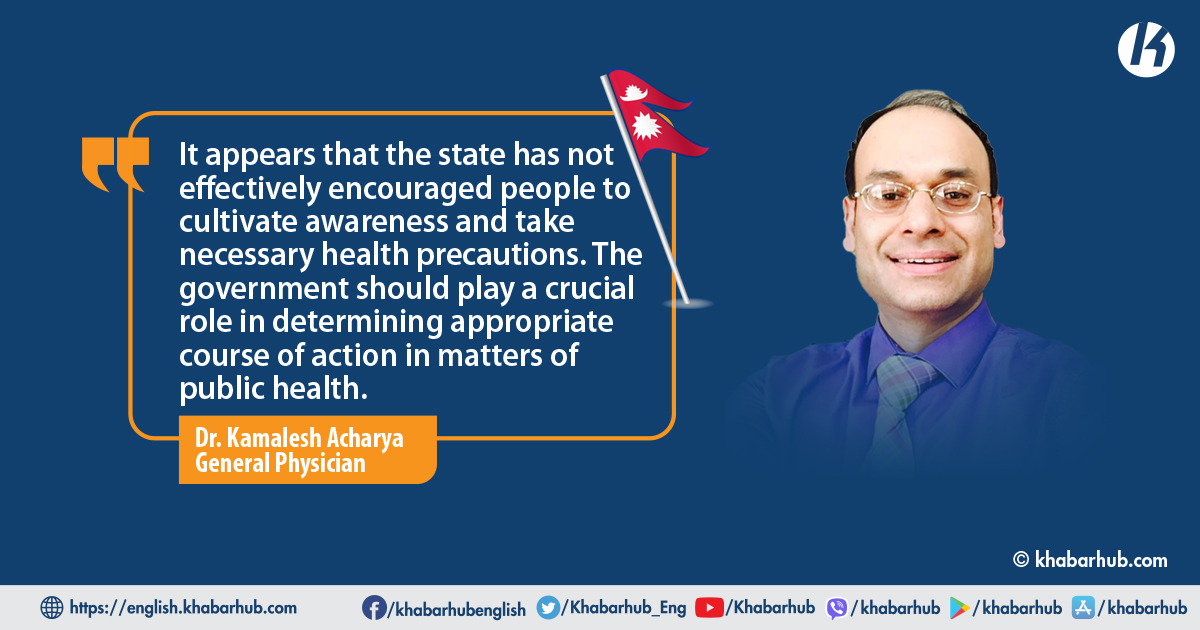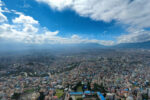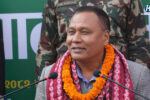KATHMANDU: Dr. Kamalesh Acharya, with extensive experience in the United States, commenced his journey at the University of Fish Burke in Pennsylvania in 2009.
Throughout his career, he has also gained valuable work experience at New York University, alongside practicing in numerous hospitals across America.
Notably, he has been involved in treating individuals afflicted with epilepsy in the United States.
In a conversation, we engaged with Dr. Acharya on a range of topics, including the healthcare system in Nepal and abroad, as well as his personal experiences in the United States.
Here are some excerpts from our insightful conversation with him:
What factors contributed to your decision to travel to America?
When contemplating my future after completing my MD degree, the idea of pursuing a career in the United States sparked within me.
As I continued working in various hospitals, an opportunity presented itself for me to undertake post-graduate training in the United States.
This prompted my decision to embark on the journey to America.
Did you secure a scholarship to fund your journey to America, or did you cover the expenses on your own?
I traveled to the US with the intention of obtaining a scholarship, and fortunately, I was successful.
Moreover, in addition to the scholarship, I also received financial support for my work. As a result, I was able to come to America without incurring significant expenses.
What specific measures do you undertake in addressing matters concerning health?
The healthcare systems in Nepal and America exhibit notable differences. As a student specializing in Family Care Physician, I have observed contrasting approaches in both countries.
In Nepal, individuals typically seek medical attention when they fall ill.
Conversely, in America, people often visit healthcare providers even when they are not sick, seeking guidance on appropriate medications and learning about preventive measures based on their specific health conditions.
What is your daily working schedule like in terms of hours?
Currently, my main role entails working in the clinic and office from 8 am to 5 pm every day.
This consistent schedule is what I follow regularly. It is important to note that in my line of work, patients often come seeking medical assistance without prior knowledge or awareness of their conditions until they experience symptoms.
In which areas have we encountered shortcomings or fallen behind?
The most significant distinction lies in the contrasting approaches to healthcare.
In Nepal, greater emphasis is placed on preventive medicine, but in the United States, efforts are made to prevent illnesses before they manifest.
For instance, certain types of cancer, such as colon cancer after the age of 45 and breast cancer in women starting at the age of 40, require proactive measures and heightened awareness.
However, in Nepal, there is a lack of awareness, inadequate arrangements, and insufficient dissemination of information regarding such preventive actions.
What distinguishes individuals who undergo regular health check-ups from those who do not?
Indeed, there are significant differences in the approach to healthcare.
For instance, even the early detection of cancer has evolved, such as the introduction of a calcium score for assessing the risk of developing certain types of cancer.
The focus has shifted from treating individuals after they experience a heart attack to monitoring their heart health prior to such a critical event.
This enables medical professionals to identify and address potential heart problems before they escalate, allowing for a proactive approach in assessing the level of risk for each individual.
Are there traditional healers or alternative medicine practitioners in America?
No, the existence of witch doctors or traditional healers is not prevalent in America.
Such practices are not recognized due to a lack of scientific study and evidence.
In the United States, after a medical examination, comprehensive notes and reports are typically provided to the patient electronically, enabling them to access details about their health and the outcome of their doctor’s visit.
This modern approach prioritizes transparent communication and discourages any unverified or superstitious practices.
What factors contribute to the disparity in service delivery between private clinics and the government sector in Nepal? Why do individuals often seek healthcare services from both sectors?
It appears that the state bears responsibility for the current situation regarding healthcare.
The state should play a crucial role in determining the appropriate course of action in matters of public health.
However, it seems that the state has not effectively encouraged individuals to cultivate awareness and take necessary precautions.
The prevailing condition of the country is well-known to everyone, and in light of this, I hold the state accountable for these circumstances.
What specific areas do you believe require improvement in order to raise awareness about health and engage the wider population in the healthcare sector?
First of all, fostering open dialogue is of utmost importance. Engaging in discussions and exchanging information can significantly contribute to raising awareness about health.
It enables us to better understand which healthcare systems are most effective and efficient.
In Nepal, it is crucial to move away from the prevailing culture of unhealthy competition and instead focus on collaboration and cooperation, avoiding any exploitative practices that hinder the delivery of quality healthcare services.
Is the issue primarily rooted in leadership at various levels?
Indeed, it appears that there is a lack of strong leadership at higher levels. While there are competent doctors and medical professionals, the issue lies in the absence of capable leadership.
The importance of valuing each individual’s health and well-being, as emphasized by the concept of a medical home, seems to be overlooked.
This situation is further compounded by the overwhelming number of patients seeking care, leading to communication challenges and patients anxiously inquiring about their appointments.
What steps can both ordinary citizens and the state take to enhance awareness of health services?
The health system in Nepal lacks a governing body, and there is a notable absence of a comprehensive system in place to promote awareness.
(Content prepared in collaboration with Avenues Television)









Comment